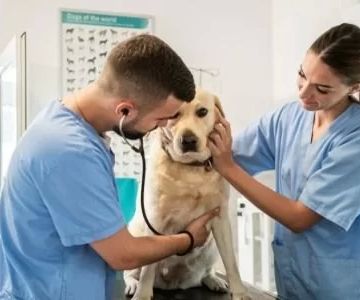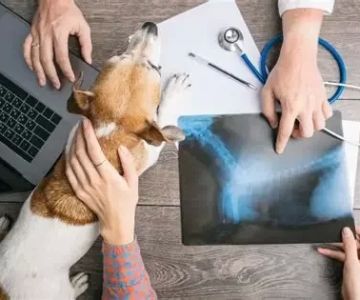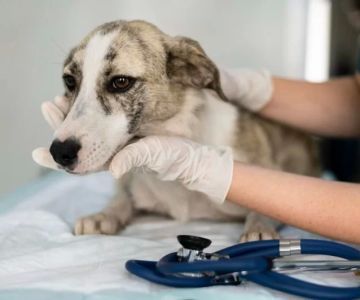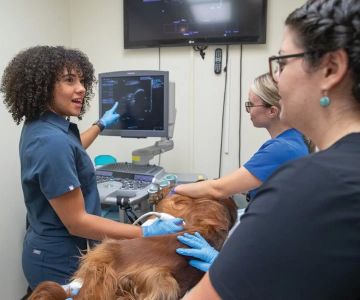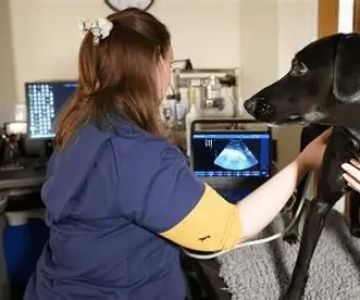How to Become a Travel Veterinarian: A Guide to a Unique Career
As the world becomes more connected, the desire to blend professional expertise with travel is growing. For animal lovers with a passion for both medicine and adventure, a career as a travel veterinarian can be a dream come true. This role allows veterinary professionals to travel the world, helping animals in different environments and under various conditions. If you’ve ever wondered how to become a travel veterinarian, you’re in the right place. This guide will walk you through the key steps to take to turn this exciting career into a reality.
What is a Travel Veterinarian?
A travel veterinarian is a specialized type of vet who combines their love for animals with the freedom of travel. These professionals typically work in a variety of settings—from remote wildlife reserves to disaster-stricken areas, or even aboard ships and airlines. Their job may involve everything from treating exotic animals in their natural habitats to providing emergency medical care in less accessible parts of the world. Travel veterinarians play a crucial role in maintaining the health and well-being of animals across the globe, making it a career both rewarding and diverse.
Being a travel veterinarian isn’t just about hopping from one exotic destination to another; it requires extensive medical knowledge, adaptability, and a true commitment to animal welfare. These professionals may be required to deal with a wide range of animals—from domestic pets to wild species, sometimes under challenging and unique circumstances.
How to Get Started as a Travel Veterinarian
Becoming a travel veterinarian is a multi-step process that involves a combination of education, practical experience, and a deep passion for animals. Here's how you can get started:
- Step 1: Complete a Veterinary Degree: The first step toward becoming a travel veterinarian is to earn a veterinary degree from an accredited veterinary school. This typically takes about four years of study and involves both classroom work and hands-on experience with animals. To work as a veterinarian, you’ll need to obtain a Doctor of Veterinary Medicine (DVM) degree or its equivalent.
- Step 2: Gain Clinical Experience: After completing your veterinary education, the next step is to gain practical experience by working in clinical settings. This could be at a private practice, animal hospital, or shelter. Some travel veterinarians also work in zoos, wildlife reserves, or with animal charities to gain diverse experience before taking on travel-specific roles.
- Step 3: Specialize (Optional): While not strictly required, many travel veterinarians choose to specialize in specific areas such as wildlife medicine, emergency care, or exotic animal care. Specializing can make you more competitive for certain travel-based veterinary roles, especially those requiring expertise in particular species or environments.
- Step 4: Build Connections with Travel-Based Opportunities: Once you have a solid foundation in veterinary practice, it’s time to seek out travel-based opportunities. You can do this by networking with organizations like animal charities, conservation groups, or companies that offer veterinary services for wildlife or pets in international settings. Many travel veterinarians also find opportunities through global veterinary networks.
- Step 5: Obtain Necessary Certifications: Depending on where you plan to practice, you may need to obtain additional certifications, such as a certification in wildlife medicine or emergency care. Some regions may also require you to be licensed in specific countries before you can treat animals there.
- Step 6: Start Applying for Travel Veterinarian Roles: Once you’ve completed your education, gained experience, and specialized in relevant fields, you can begin applying for travel veterinarian roles. These might include working with wildlife conservation programs, on film sets with animals, or even in remote villages and disaster zones.
Benefits of Being a Travel Veterinarian
Being a travel veterinarian offers a unique set of rewards. Here are a few of the benefits that come with this exciting career:
- Adventure and Exploration: One of the most obvious perks of being a travel veterinarian is the opportunity to explore new parts of the world. Whether you’re providing veterinary care to animals in the Amazon rainforest or on a tropical island, you’ll be able to see and experience things most people never will.
- Diverse Work Environment: Travel veterinarians work in a wide variety of settings, from remote villages to high-end animal care aboard private jets. This diversity can make the job incredibly exciting and prevent burnout, as each day is different.
- Making a Positive Impact: Travel veterinarians often work in challenging environments where animals may not have access to the same level of care they would receive in more developed areas. By providing care to these animals, you make a significant difference in their well-being and in the lives of the people who rely on them.
- Personal Fulfillment: For many veterinarians, the fulfillment of helping animals is a key motivator. Being able to combine this with the opportunity to travel and see the world creates a rewarding balance between professional and personal passions.
Challenges of Being a Travel Veterinarian
While being a travel veterinarian has its perks, it’s not without its challenges. Some of the common obstacles faced by travel veterinarians include:
- Adapting to New Environments: Travel veterinarians frequently work in environments that are not always as comfortable as those in urban clinics. They may have to work in less-than-ideal conditions, such as in areas with limited veterinary resources or in harsh climates.
- Physical Demands: The nature of travel veterinary work often involves long hours, physical labor, and sometimes the need to work with large or difficult animals in challenging situations.
- Emotional Strain: The responsibility of providing care for animals in distress, especially in disaster or poverty-stricken areas, can be emotionally draining. It’s important for travel veterinarians to have a strong support network and self-care strategies to manage stress.
Where to Find Opportunities for Travel Veterinarians
If you’re ready to embark on your journey as a travel veterinarian, there are a variety of organizations and companies that can help you find relevant job opportunities. Many travel veterinarians find work through:
- Wildlife Conservation Organizations: These organizations often need veterinarians to care for endangered species and other animals in remote or protected areas.
- Film and Television Productions: Some veterinarians work in the entertainment industry, caring for animals used in movies, TV shows, and commercials.
- Animal Welfare Groups: NGOs that work in disaster relief or humanitarian efforts may require veterinarians to provide care to animals in emergency situations.
- International Veterinary Networks: Several global networks specialize in helping veterinarians find travel-based positions. These networks connect professionals with opportunities to work with animals in diverse settings.
Conclusion: Start Your Journey as a Travel Veterinarian
Becoming a travel veterinarian is a rewarding career path for those who love animals and seek adventure. With the right training, experience, and connections, you can combine your passion for animal care with your desire to explore the world. By becoming a travel veterinarian, you’ll be able to make a significant impact on animal welfare while experiencing unique cultures and landscapes along the way.
If you’re ready to begin your journey, visit Elaleph Cruising to explore the right opportunities and resources to help you start your exciting career as a travel veterinarian.
SEO Title: How to Become a Travel Veterinarian: A Step-by-Step Guide SEO Keywords: travel veterinarian, how to become a travel veterinarian, veterinary career, travel vet jobs, veterinary opportunities SEO Description: Learn how to become a travel veterinarian with our comprehensive guide. Discover the steps, benefits, and challenges of a career that lets you combine animal care with travel.


